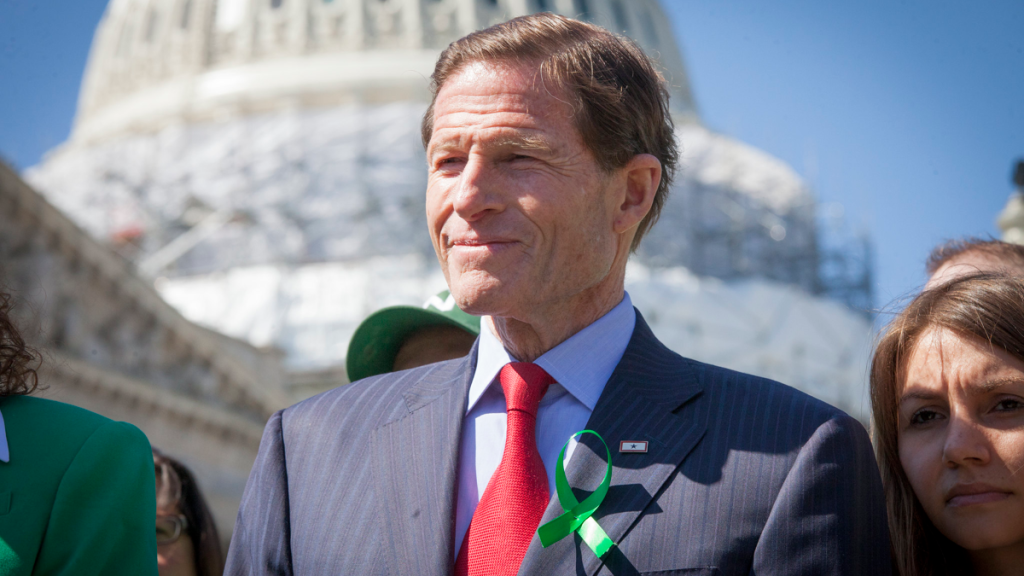Photo Credit: US Senator Richard Blumenthal
Senator Blumenthal hosted a press event at an independent venue to formally demand FTC action to address deceptive ticketing practices.
Senator Richard Blumenthal hosted a press event at Hartford, Connecticut’s Infinity Music Hall to highlight the impact of predatory ticketing practices on local economics and live entertainment. To that end, he released an open letter to the FTC, demanding an investigation into deceptive ticketing practices and enforcement of the BOTS Act.
In response, the Fix the Tix Coalition and the National Independent Venue Association (NIVA) released a statement showing their support for Senator Blumenthal’s request:
“Senator Blumenthal’s letter to the FTC is a much-needed step in holding predatory ticket brokers and resale platforms accountable,” said Stephen Parker, Executive Director of NIVA. “By hosting this event at Infinity Music Hall, Senator Blumenthal underscores the critical role independent venues play in this country’s local economies and consumers’ vulnerabilities to these exploitative practices. Professional resellers siphon money away from small businesses, depriving venues and artists of essential revenue, and fans of basic consumer protections.”
NIVA recognizes these predatory tactics are not insulated to a few stages or even a few states; they are pervasive in nearly every venue across the country. Using bots to buy up tickets en masse is already illegal, yet a federal law prohibiting the use of bots to purchase tickets has only been enforced once since it was enacted in 2016.
“We hope today’s action causes the FTC to finally enforce the BOTS Act after years of inaction and sparks a wave of action from state legislators to enforce stronger ticketing protections for consumers nationwide,” said Parker.
In addition, a study conducted by Connecticut independent venues and promoters over the last two months discovered widespread use of deceptive and fraudulent practices by ticket brokers and major resale platforms. Such tactics included:
Ticket Hoarding and Bots — Professional predatory resellers buy up tickets from venues’ primary market sales and immediately list them on the secondary market with exorbitant markups, with no intention of attending shows. This makes it nearly impossible for true fans of live entertainment to purchase tickets at the reasonable face value price that venues set. Predatory secondary sellers also use illegal botting software to optimize their ticket hoarding.
Deceptive Advertising through SEO and Stolen Imagery and IP — Secondary reseller platforms leverage their capital to secure sponsored Search Engine Optimization (SEO) placement, causing their sites to appear before primary market venues on search engines like Google. This misleads consumers into buying more expensive tickets, as it buries the official site where cheaper primary tickets are available. Secondary sites also use venue, artist, and event imagery and intellectual property to deceive consumers into thinking they represent the original sellers.
Deceptive Advertising by Driving False Demand — Through deceptive disclosures, secondary reseller platforms create an illusion of high demand, pressuring consumers to make hasty purchases by providing misleading information about the availability of tickets on the primary market.
Price Gouging — Predatory secondary resellers list tickets for high rates while cheaper tickets are still available on the primary market.
“At Infinity Music Hall, we’ve seen firsthand how deceptive ticketing practices — like bots snatching up tickets and speculative sales — harm both fans and businesses,” said Tyler Grill, CEO and Managing Partner of Infinity Music Hall.
“These tactics not only frustrate concertgoers but also undermine the trust and financial stability that venues like ours rely on to thrive. Hosting today’s event with Senator Blumenthal gives us hope that real action is finally being taken to protect both venues and consumers from these practices. It’s time for meaningful reform that brings fairness and transparency back to the ticketing process.”

